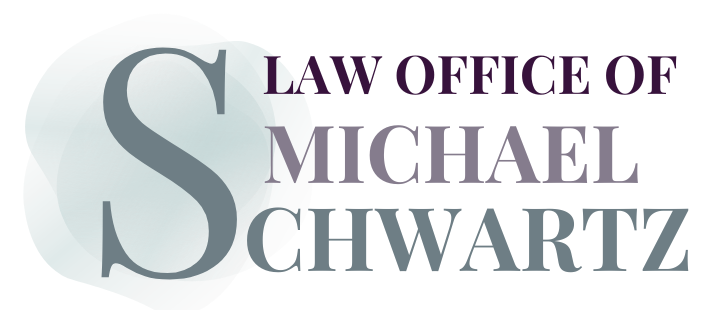Private Loans vs. Government-Backed Loans: Which Is Right for You?
Choosing the right financing option can feel overwhelming when you’re facing significant expenses like education, home purchases, or business ventures. Two primary categories dominate the lending landscape: private loans and government-backed loans. Each serves different needs and comes with distinct advantages and drawbacks.
Understanding these differences is crucial for making informed financial decisions. Government-backed loans offer stability and borrower protections, while private loans provide flexibility and potentially faster approval processes. The choice between them often depends on your credit history, financial situation, and long-term goals.
Bankruptcy attorney Michael Schwartz will help you navigate the key distinctions between private loans vs. government-backed loans, empowering you to choose the option that best aligns with your financial circumstances.
Understanding Government-Backed Loans
Government-backed loans represent financing options where the federal government either directly provides funds or guarantees repayment to private lenders. These loans are designed to make borrowing more accessible and affordable for eligible individuals.
How Government-Backed Loans Work
The federal government serves as your lender for these loans. For example, to access these funds for student loans, you’ll need to complete the Free Application for Federal Student Aid (FAFSA) form, which determines your eligibility and loan amounts based on your financial need.
Interest rates for government-backed loans are generally lower than private alternatives. These rates are fixed and regulated by the government, providing predictable monthly payments throughout your repayment period. The government sets these rates annually, ensuring they remain reasonable and accessible.
Borrower Protections and Benefits
Government-backed loans offer extensive borrower protections that private loans typically cannot match. These include:
- Income-driven repayment plans adjust your monthly payments based on your income and family size, ensuring payments remain manageable even during financial hardship.
- Deferment and forbearance options allow you to temporarily pause or reduce payments during unemployment, economic hardship, or other qualifying circumstances.
- Loan forgiveness programs may eliminate remaining debt after meeting specific requirements, such as working in public service or making consistent payments for a designated period.
These protections provide a safety net that can prevent default and financial ruin during challenging times.
Ideal Candidates for Government Loans
Government-backed loans work best for borrowers who prioritize stability and need flexible repayment options. They’re particularly suitable for students, first-time homebuyers, and individuals who may not qualify for competitive private loan rates due to credit limitations.
Exploring Private Loans
Private loans come from banks, credit unions, and other financial institutions. These lenders operate independently from government programs and set their own terms, requirements, and interest rates.
Private Loan Application Process
Applying for private loans involves working directly with individual lenders. Each institution has its own application process, requirements, and approval criteria. You’ll need to shop around and compare offers from multiple lenders to find the best terms.
Private loan interest rates fluctuate based on market conditions and your creditworthiness. Borrowers with excellent credit scores often secure competitive rates, while those with poor credit may face significantly higher costs or require co-signers.
Credit Requirements and Approval
Private lenders require thorough credit checks and evaluate your credit history, income, and debt-to-income ratio. A strong credit profile is essential for securing favorable terms. Many lenders require minimum credit scores, and borrowers who don’t meet these standards may need co-signers to guarantee the loan.
The approval process can be faster than government programs, with some lenders providing decisions within hours or days. This speed can be advantageous when you need funds quickly.
Limited Borrower Protections
Private loans typically offer fewer borrower protections compared to government-backed options. While some lenders may provide hardship options, these aren’t guaranteed by law and vary significantly between institutions.
Private loan terms are determined by individual lenders and outlined in your loan agreement. This means less standardization and potentially fewer safeguards during financial difficulties.
Best Fit for Private Loans
Private loans work well for borrowers with good to excellent credit who can secure competitive interest rates. They’re also suitable when you need amounts exceeding government loan limits or when government programs don’t cover your specific needs.
Key Differences Between Private and Government-Backed Loans
1. Interest Rates and Fees
Government-backed loans typically offer lower, fixed interest rates that remain constant throughout your repayment period. Private loans may have variable rates that fluctuate with market conditions, potentially increasing your costs over time.
Fee structures also differ significantly. Government loans often have minimal fees, while private lenders may charge origination fees, application fees, and other costs that increase your total borrowing expense.
2. Eligibility Requirements
Government-backed loans prioritize financial need and accessibility. Private loans focus on creditworthiness and ability to repay, making them less accessible to borrowers with limited credit history.
3. Repayment Options and Flexibility
Government loans provide multiple repayment plans, including income-driven options that adjust based on your financial circumstances. Private loans typically offer standard repayment terms with limited flexibility for modification.
The ability to pause payments during hardship is more readily available with government loans through established deferment and forbearance programs.
4. Borrower Protections
Government-backed loans include comprehensive borrower protections mandated by federal law. These protections remain consistent regardless of your loan servicer. Private loans offer limited protections that vary by lender and aren’t guaranteed by federal regulation.
Legal Financial Guidance
When facing overwhelming debt or financial difficulties, professional guidance can make a significant difference in your financial recovery. With more than two decades in bankruptcy law, Michael Schwartz helps individuals navigate complex financial challenges and achieve lasting financial stability.
The Law Office of Michael Schwartz provides comprehensive legal services designed to restore your financial well-being. Through Chapter 7 and Chapter 13 bankruptcy counseling, they review your specific situation and recommend appropriate solutions tailored to your needs.
During initial consultations, Michael Schwartz discusses all available options, including bankruptcy alternatives, debt settlement programs, and credit counseling services. This comprehensive approach ensures you understand every path toward financial recovery.
Serving Bucks County, Delaware County, Montgomery County, and the entire Philadelphia region, Michael Schwartz offers free consultations to discuss your options. With offices in Southampton, Havertown, and Perkasie, Pennsylvania, professional help is accessible when you need it most. Contact us today to schedule a free consultation.


